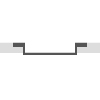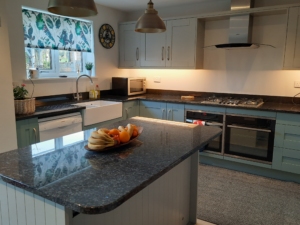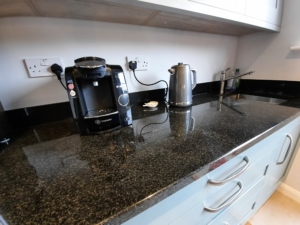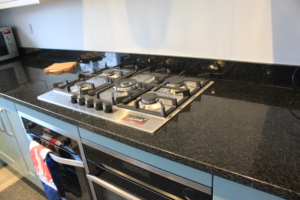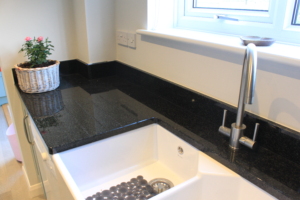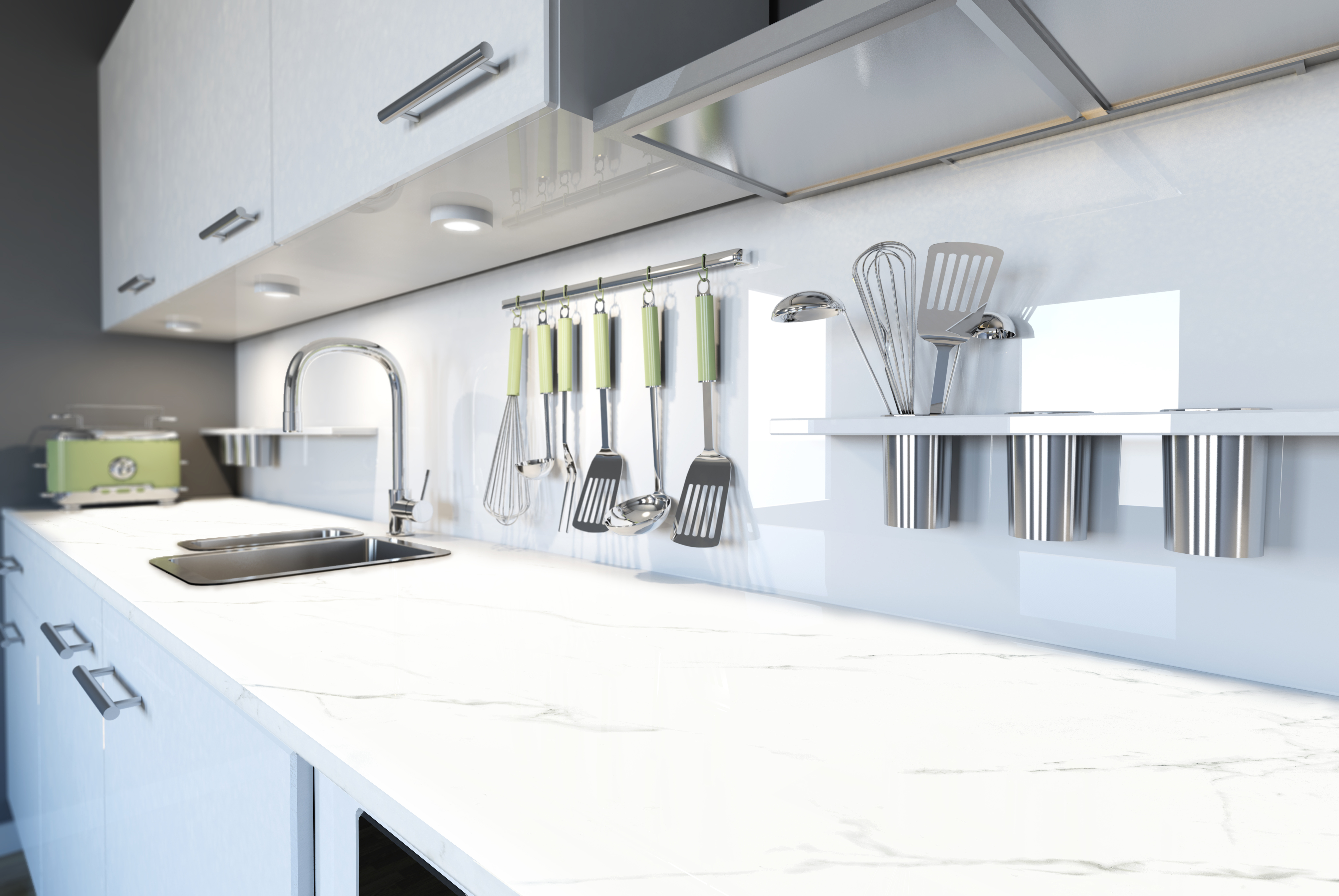
How much does a kitchen worktop cost?
This is a tricky question to answer. It’s almost as tricky as “How much does a car cost?”
Cars come in hundreds of makes, each with a wide range of models and various optional accessories. It’s the same with stone kitchen worktops. Sure, a kitchen worktop is not a car, but this is the closest comparison we could think of. We’ll say for starters that the material makes up about 50% of the price of the end product.
“If you’re searching for square metre prices of stone surfaces on the internet, multiply the price by two.”
The other half is the cost of the finishing, measuring and installation services.
Consequently, it’s not the best idea to order a worktop according to the square metre price! We recommend getting quotations from different manufacturers and include the cost of the finishing.
The price of stone materials depends on the properties of the stone, its origin, production technology and related costs.
As we mentioned above, the price of the stone material is a major price component. Stone worktops vary in terms of their properties and origin (natural vs. artificial), and the resources and energy it takes to prepare the worktop.
Average prices
The price per square metre for a granite worktop is on average £270, although high-end granites may cost as much as £450 per square metre.
Marble worktops cost £315 per square metre on average. If you choose marble, you should be one hundred per cent sure that you are ready to take care of it. Marble is an absorbent material with a light-coloured surface that wine and food can easily stain. Without proper maintenance, you may already have to replace your marble worktop after a couple of years. If your kitchen is always spick and span and your marble worktop is taken care of meticulously, it can look good for decades.
The average price of a quartz worktop is about £475 per square metre. Some cost half the price (£225) and others cost twice (£900). Why do the prices differ? Quartz is a man-made material and it takes more resources to make a quartz worktop than it takes to make a marble or granite worktop. Even though the price can sometimes be higher, quartz worktops are more durable, their absorbency has been reduced to a minimum and they are very easy to take care of.
Ceramic materials are also industrially made, but unlike quartz, ceramic worktops are 100% natural. The manufacturing process for ceramic worktops is more complex and time consuming, resulting in higher prices. Ceramic worktops usually start from £450 per square metre.
Ranking the four materials
Ceramic worktops would be the most expensive, followed by quartz and marble. The cheapest option would be a granite worktop, but you should keep in mind something very important – this is an average calculation and there are always exceptions.
The price of a stone worktop largely depends on its thickness and size.
Another important price component is the dimensions of the material. This aspect is fairly straightforward. The larger the area and the thicker the piece, the higher the price of the worktop.
Diapol sells stone materials of 12, 20 and 30 mm, and the thickness plays a major role in the price of the worktop.
Furthermore, if you compare ceramic worktops of 12 and 30 mm, the latter may even cost twice the price. Thicker always costs more.
Why choose a thicker material if it’s more expensive?
Above all, it can be an advantage to choose a thicker material, since there are places where the thinner worktops should not be installed. If a worktop extends over the edge of the supporting structure by just 30 cm, it may break when something heavy is put on it. Corners are especially sensitive places, as they are usually not supported. We highly recommend that your worktop is supported.
Finishing stone materials may cost more
At first glance, the finishing of a component seems inexpensive in itself. If you add all the pieces, however, it may bring the price up quite a bit. This includes things like openings for a sink, sockets and taps, and profiles.
Finishing the openings in a worktop means cutting openings into the stone worktop– for a stove, sink or taps.
It is noteworthy, that when using quartz and granite worktops, we make sure that the openings are cut using automatic CNC machine tools. In the case of ceramic worktops, this is done with a water jet. These tools are fairly expensive to maintain, and this is reflected in the price.
Stove and sink openings can be cut using various methods, each with a different price.
In addition, a stove can be installed in two ways: overmounted and flush-mounted.
Sink installation
A sink can be installed in as many as four different ways ‒ undermounted, under-up mounted, overmounted and flush-mounted.
Each cut has its own price. The average cost of cutting a stove or sink opening is up to £180 and each tap opening may cost up to £65, depending on the diameter of the tap. A socket opening can cost up to £80.
Furthermore, when it comes to profiles, we offer six different types at Diapol.co.uk! Straight and chamfer are the simplest and cheapest. Rounded profiles are the most expensive, as they require special tools.
The last price component is measuring and installation
These services may add 25–50% to the price of the worktop. The percentage is smaller for larger and more expensive worktops.
The price of measuring and installation depends on the location and the specific work required. It has happened that a worktop was too large to be carried to the fifth floor and had to be lifted in using a crane, and this costs extra.
Certainly, measuring is an important stage. As a consequence, if we haven’t done the measuring of the worktops ourselves, we generally do not cut them. In other words, we take full responsibility in what we do. A stone worktop is one of the most expensive components of a kitchen. If the stone worktop does not fit into the kitchen for whatever reason, it’s an expensive mistake to fix.
Material + finishing + measuring and installation = the final price
Finally, keep in mind: stone lasts!
In the end, if you take proper care of your worktop, stone will be cheaper than wood or laminate. With the right care, a stone kitchen will last a lifetime!

